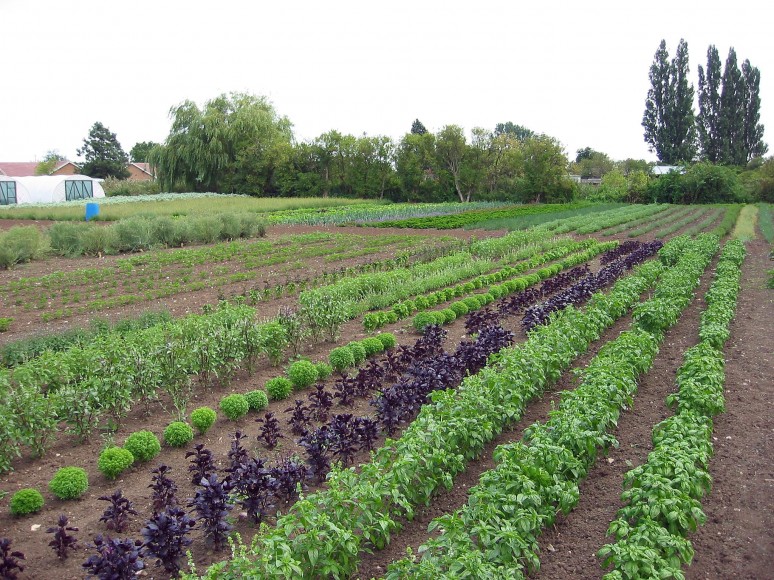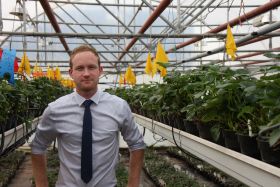Horticulture news
The weather was kind to us on Friday 21st June 2019 for our annual golf day held at The Luffenham Heath Golf Club. With the weather being more autumnal over the last few weeks, there was definitely some worry in the run-up that we may have to postpone. Luck was on our side however and the sun did appear.
A total of nine teams took part, made up of some of our valued clients from the Food Manufacturing, Fresh Produce and Horticulture sectors. The golf was mixed at best, with some fantastic scores and some awful ones, but mainly great fun was had by all.
Recruitment Director, Jason Kilbride said:
“The annual golf day is always a day in the calendar which we look forward to. It’s a great opportunity to spend time with clients who have supported us and continue to work with us throughout the years. Luffenham Heath is a beautiful setting and a challenging day.”
We would like to say a huge thank you to all that attended and in doing so, helped to raise some money for our charity. Special thanks to our Office Manager, Natalie Pask who put in so much effort organising the day, which ran very smoothly.
See you again next year!
RESULTS:
1st Prize – Gareth Silverwood – Munoz – 40 points
2nd Prize – Julian Wright – Ripenow – 34 points
3rd Prize – Mike Harpham – Consultant – 34 points
Ladies Prize – Rachel Gedney – TH Clements
Nearest The Pin – Mike Harpham – Consultant
Longest Drive – Louis Meryon – Addo
Team Prize – Gareth Silverwood – Munoz
Richard Dyde – Vitaal
Ian Ball – Total Produce
Mark Player – Munoz
Wooden Spoon – Leigh Jones – Total Produce Food Service
Bandit – Gareth Silverwood (40 points off 28 Handicap!!)
Cutting costs and improving overall efficiencies are some of the biggest priorities for the Operations and Supply Chain professionals we at Henderson Brown work with. New technological advances have transformed the way that food manufacturing businesses operate either reducing costs or simply increasing information flow.
2019 is set to present several interesting trends which Henderson Brown feels are significant and of real interest; Artificial Intelligence (A.I.) and cloud-based software systems are transforming the way that businesses interact with one another. FuturMaster, the systems provider which works with the likes of Heineken and PepsiCo have highlighted the value in this. In an interview with the website, Food Manufacture, earlier in March 2019, FuturMaster sales manager Martin Sewell said
“More data is becoming accessible and senior management are beginning to see the value of it much more than they have done.”
Sewell explained that software firms which focus on supply chain are now having to adjust themselves in line with this. It is important that companies which produce food and drink are proficient in the ability to capture all the additional data they are generating. Moving on from that, they need to be able to analyse it appropriately so that they can redeem the efficiencies they are searching for.
The supply chain for the food and beverage manufacturing sector is highly complex. The ability to drill down into the consumer demand data and how this affects a business (and their competition) is of huge competitive importance. Understanding this data and the clear insight that it gives will lead to making well thought out predictions and should direct a firm to provide an almost seamless delivery service across multiple sales channels. Even online sales channels which can be difficult to predict are becoming easier due to the availability of data instantly.
The market is now seeing more reliance and requirement for cloud-based supply chain software which is then being used in conjunction with A.I. As more and more data is gathered then stored, A.I. works to analyse the trends and aid with more efficient planning – A.I. performs the tasks more quickly and efficiently than a human brain too, thus cutting manpower costs and the removal of potential human error. The result should enable for forecasts to be made more precisely. Furthermore, the possibilities of supermarket shelves becoming out-stocked or overstocked would be reduced with the subsequent reduction in stock wastage.
Improvements to overall supply-chain efficacy and finances all round!
At Henderson Brown, we have listened to how our clients are changing and about how the methods they have implemented to achieve these changes have impacted their business. For example using GPS tracking connected to smart sensors, which results in the improved accuracy of the product’s location in the supply chain. Companies can acquire assurances about the condition of goods and gauge what quantities are or are not needed and where. Every product can pretty much be tracked to the person who packed it, the source and the consumer who bought it.
Of the various roles we have been asked to recruit for, the competencies of future employees now extend to understanding and appreciating the importance of data and how it is used. Being data savvy with an analytical mind is a key requirement.
The need to produce quality products on time, in full and at the lowest cost possible whilst also minimizing the amount of waste made increases continually as margins come under more pressure. There is, therefore, a constant demand for employees to continuously improve and drive out costs. Going further, these employees need to ensure that the supply chain runs as smoothly as possible so that a business matches the demands of their customer.
Will Malcolm and Joe Hill both work in the Operations and Production division at Henderson Brown and of these job requirements they say:
“We are speaking with many more candidates that are excited at the way they are having to integrate new systems into their roles. They see the benefits and the opportunities on offer to themselves and the businesses they want to work for. On top of this, our clients want to employ people that appreciate how the various advances now present a greater understanding of the consumer’s needs and relish the opportunity to expand their technological know-how.”
What other technological advances do you see as being of influence in 2019?
Check out the latest live Operations and Production roles, here.
Henderson Brown Golf Day 2018
Another fantastic event held at Luffenham Heath Golf Club, supporting our charity of the year The Green Backyard. Well attended with figures from across the Food Manufacturing, Fresh Produce and Horticulture sectors, the weather was glorious and although the golf was challenging, all had a thoroughly enjoyable day. Thank you to all of our attendees for their continued support.
Our winner was Steve Rudge; after plenty of practice in the UAE over the last year he held of competition from last years winner Jason Smith. Both definitely marked for a handicap cut next time around! We look forward to seeing you all again next year.
Overall Winner: Steve Rudge
Runner Up: Jason Smith
3rd Place: Andy Coaten
Nearest The Pin: Steve Maxwell
Longest Drive: Peter Ellis
Winning Team: Steve Rudge and Peter Fry
Kent-based strawberry and pear farmer will be representing the interests of all growers in the south-east region

David Long has joined the NFU’s horticulture and potatoes board.
Long runs DG Long, a 1,500-acre family-owned farm near Rochester, Kent, producing pears and strawberries, among other crops.
Long has overseen an expansion of the business in the last decade which has focused on the planting of new pear orchards.
NFU horticulture adviser, Chris Hartfield, commented: “The NFU would like to congratulate David on his appointment to the national horticulture and potatoes board. We have no doubt that his experience in growing pears and strawberries will make his input invaluable to the challenges we face as a sector.
“As well as representing the interests of fruit growers, David will also be representing the interests of all growers in the south-east region.”
Plans for a fresh produce-specific centre turned down by Innovate UK, but industry invited to take part in wider agricultural bid
The future of fresh produce research has been dealt a blow after plans for a Fresh and Prepared Produce Innovation Centre were rejected.

Innovate UK – the new name for the Technology Strategy Board – turned down proposals for the new centre, which would have highlighted major challenges facing the sector, including increasingly restrictive regulatory controls on the use of pesticides and other inputs, consumers’ demands and unpredictable weather conditions.
Innovate UK is investing £200m in new technology and innovation centres, but the body decided not to fund a fresh produce-specific centre.
Instead the Horticulture Innovation Partnership (HIP), which co-ordinated the bid and expressed its disappointment at the outcome, said it has been invited to represent the sector at a collaboration event on January 15th organised by Innovate UK to build consortia for the Centres for Agricultural Innovation.
“We are encouraged by this and will take a full and active part in the consortia building event,” said HIP chair Mary Bosley.
“The HIP’s priority remains, as we have always stated, to make sure that the fresh produce sector is positioned to take best advantage of whatever landscape of innovation centres are eventually funded, while taking account of the industry’s identified needs,” Bosley added.
New MD David Robinson led buyout of Devon seeds supplier, with backing from Limagrain and Torbay Council
Seeds supplier Sutton Seeds has announced a management buyout aided by former owner Limagrain and Torbay Council.
The Devon-based firm said the deal ensures continued jobs and growth, as well as providing a springboard for new business.

It was led by commercial director David Robinson, now appointed managing director, and operations director Rufus Roberts, who said that it heralds a “new era” for Suttons.
French grower co-operative Limagrain is no longer a direct shareholder but will remain an important trading partner in Suttons, which will continue to operate from its facilities in Paignton, Devon.
Bernard Bejar, recent MD of Suttons who was instrumental in the transition towards the buy-out, will return to Limagrain in France.
“Suttons have plans to launch innovative and new products, for both our faithful as well as new and budding customers, as we continue to focus on both direct to consumer and retail markets,” said David Robinson.
Rufus Roberts said he is “looking forward to consolidating our base business and adding new opportunities within this new dynamic as, together, we seek to build a solid platform with long term focus. This can only be good news for our loyal customers, suppliers and staff.”
Mark Greaves, partner at accountancy firm Francis Clark, said: “This is a critical next step in the evolution of Suttons, returning it to independent, local ownership. The management team is excited by the opportunities and we have been delighted to play a key part in the deal.”
Farmers to receive cash refund for first time as EU reimburses money it held back from CAP funding for crisis fund
Farmers will be refunded any money that was deducted from 2014 direct CAP payments, and used to create an agricultural crisis fund, for the first time this year.

English farmers will get the majority (65%) of the total refunded to the UK with around £44.8m, while Scottish farmers will receive 18% of the total amount (£12.5m). Northern Irish farmers will receive 8% (£4.4m) and Welsh farmers will receive around 9% (£6.1m).
Farmers should receive their refunds alongside SPS payments at the start of December, and no later than October 2015 according to the European Commission regulation.
In total, the EC is reimbursing €868m (£689m) to farmers across Europe, following a new regulation that came into force on 24 November 2014. The regulation states that money held back from CAP funding and used as a crisis fund during 2014, is reimbursed to farmers if the crisis fund is not needed.
It was agreed as part of the 2013 CAP reform, and is now in place for the first time.
The holding back of money and repayments only applies to claims above €2,000 (£1,590). The EC said holding back money from direct CAP payments during 2014 was necessary to establish an agricultural crisis fund, and ensure that total CAP funding remained capped as agreed by the Multiannual Financial Framework 2014 to 2020.
Daniel Smith’s work on fertigation has been adopted by major soft fruit firms, and has landed him the KTP prize
A young horticultural researcher who has implemented changes to fruit-growing practices which are already bringing financial benefits as part of a Knowledge Transfer Partnership (KTP) has been awarded the Business Leader of Tomorrow prize at this year’s prestigious Knowledge Transfer Partnerships (KTP) Awards in London.
Daniel Smith, who works for the James Hutton Institute in Scotland as part of a Knowledge Transfer Partnership (KTP) with S&A Group in Herefordshire, has been developing optimal ways to apply fertilisers, soil amendments and other water-soluble products via irrigation systems, a process known as fertigation.
Fertigation is a key component in success for soft fruit producers like S&A, and Smith’s project is already having an impact.
Since beginning it, Smith has delivered changes that have already yielded benefits well beyond what was anticipated when the KTP was initiated. Changes to growing practices like improved monitoring and precision irrigation have resulted in reduced crop losses as well as reduced inputs, like fertiliser and water, which have amounted to significant financial savings.

On being awarded the prize, Smith said: “I’m delighted to have been recognised with the KTP Business Leader of Tomorrow Awards, and that my work is making a positive contribution to the industry.
“The KTP between S&A and the James Hutton Institute is a prime example of how the development of closer relationships between industry and academia can result in measurable benefits that can have huge impacts across a business.”
Dr Robert Hancock, the academic supervisor of the project at the James Hutton Institute, welcomed the award. “Daniel’s success in winning this prestigious honour is a reflection of his hard work, dedication and innovation,” he said.
“Given the size of the operation at S&A, Daniel’s findings will have a significant impact in enhancing the sustainability of the UK strawberry growing industry.”
On behalf of S&A Produce, Irene Geoghegan added: “We are delighted that Daniel has won this award; he’s inventive, resourceful and absolutely deserves this accolade. His positive input into the development of novel strawberry growing techniques has maximised yield and fruit quality whilst minimising inputs for the farm.”
Knowledge Transfer Partnerships is a UK-wide programme linking commercial organisations with academic institutions to help support and shape the future of British business. Its primary objective is to help businesses grow through improved innovation, competitiveness and productivity via better use of the knowledge, technology and skills available within universities and other parts of the UK.
It is funded by Innovate UK, along with 12 other public sector partners, and aims to strengthen the competitiveness, wealth creation and economic performance of the UK by enhancing knowledge and skills, and stimulating innovation through collaboration.
The Soil Association has claimed its Organic September campaign caused a ‘boom’ in the organics market, causing growth of 3.6% during the month.
Nielsen figures showed that sales of organic products in September exceeded £100 million, and the Soil Association said this was down to its campaign, “proving small changes can add up to a big difference”.
Organic September encouraged consumers to change their shopping habits for the month by putting organic food and drink in their trolleys. The campaign involved local independent retailers and online and national UK supermarkets, and reached over six million people through social media, according to the Soil Association.

Finn Cottle, trade consultant at the Soil Association, said; “This is a clear sign informed UK shoppers are becoming more loyal to organic food and drink. Campaigns like Organic September, alongside recent positive publicity and a renewed emphasis on innovation and new listings, are all helping to bolster performance. The organic sector has been performing exceptionally well since the release of Newcastle University’s research on the benefits of organic, and in fact this growth has taken place against the backdrop of a deflated non-organic sector. New products and wider accessibility to organic will continue to help secure growth in this market.”
The organics group said new figures suggested continued growth for the sector. The 52 weeks to 11 October 2014 showed growth of 1.6%, compared to the same period last year. It added that organic poultry had been one of the best performers, with growth of 6.6%. The independent retail sector saw organic sales grow by 6.9%.
Mike Kilcourse, commercial director at wholesaler Tree of Life, said: “Interest in organic foods has been particularly strong recently. Sentiment among our retail customers is positive. Recent growth in sales of organic products will have been helped by marketing and promotional activities right the way through the supply chain. Campaigns such as the Soil Association’s Organic September month-long promotion, which we were glad to support this year, go a long way to help raise awareness.”






















